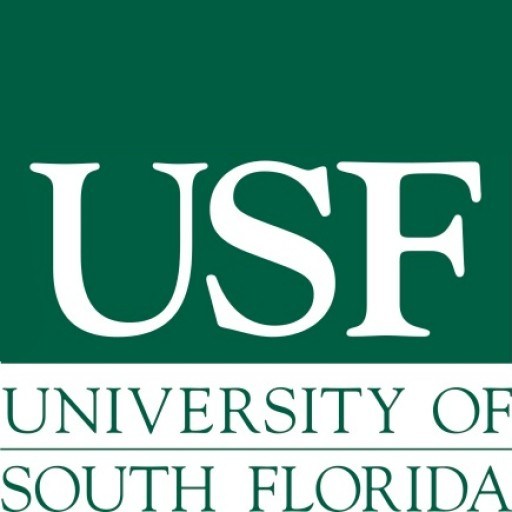Photos of university / #universityofutah
The Bachelor of Science in Parks, Recreation, and Tourism at the University of Utah prepares students for dynamic and rewarding careers dedicated to enhancing the quality of life through the management and development of leisure services, outdoor recreation, and tourism industries. This comprehensive program combines theoretical foundations with practical applications, equipping graduates with the skills necessary to serve diverse communities and environments. Students engage in coursework that covers park management, recreation programming, environmental sustainability, tourism development, and leadership strategies, fostering a multifaceted understanding of the sector. The curriculum emphasizes experiential learning through internships, fieldwork, and community projects, providing real-world insights and professional connections. Graduates of this program are well-prepared to pursue opportunities in public agencies, private enterprises, non-profit organizations, and entrepreneurial ventures focused on tourism development, outdoor recreation management, and parks administration. The program also emphasizes sustainability and social responsibility, encouraging students to develop innovative solutions that balance economic growth with environmental conservation. With access to state-of-the-art facilities and a dedicated faculty with expertise across various disciplines, students receive personalized mentorship to advance their careers. The university’s strong connections within the industry offer networking opportunities, workshops, and conferences that keep students abreast of current trends and emerging opportunities. By the time they graduate, students will possess a comprehensive understanding of planning, programming, marketing, and operational strategies tailored to the parks, recreation, and tourism sectors. The program aims to produce professionals who are committed to promoting healthy, inclusive, and sustainable recreation and tourism options that benefit individuals, communities, and ecosystems. Whether students aspire to work as park managers, recreation coordinators, tourism development specialists, or entrepreneurs, this program provides the foundational knowledge and practical experience needed to excel in the vibrant field of parks, recreation, and tourism.
Master Requirements for Parks, Recreation and Tourism (Thesis)
Parks, Recreation and Tourism Core
- PRT 6000 - History and Philosophy of Parks, Recreation, and Tourism 3 Credit(s)
- PRT 6030 - Seminar in Managing and Facilitating Recreation Experiences 3 Credit(s)
- PRT 6800 - Graduate Seminar in Parks, Recreation and Tourism 1 Credit(s)
Research Core
- PRT 6010 - Behavioral Science Foundations in Parks, Recreation, and Tourism 3 Credit(s)
- PRT 7102 - Introduction to Research Methods 3 Credit(s)
- PRT 7800 - Seminar in Parks, Recreation and Tourism Research 1 Credit(s)
- PRT 7103 - Design & Analysis I 3 Credit(s)
- PRT 6970 - Thesis: Master's 1 - 9 Credit(s)
Specialization
Area of Specialization Negotiated with supervisory committee (up to 50% can be approved by advisor)
Master Requirements for Parks, Recreation and Tourism (Non-Thesis)
Parks, Recreation and Tourism Core
- PRT 6000 - History and Philosophy of Parks, Recreation, and Tourism 3 Credit(s)
- PRT 6030 - Seminar in Managing and Facilitating Recreation Experiences 3 Credit(s)
- PRT 6800 - Graduate Seminar in Parks, Recreation and Tourism 1 Credit(s)
Research Core
- PRT 6010 - Behavioral Science Foundations in Parks, Recreation, and Tourism 3 Credit(s)
- PRT 6550 - Interpreting Research 3 Credit(s)
Capstone Experience
Must contain service learning and a significant project
- PRT 6860 - Graduate Practicum in Parks, Recreation and Tourism1 - 8 Credit(s)
- PRT 6861 - Graduate Practicum in Therapeutic Recreation 1 - 8 Credit(s)
Specialization
Area of Specialization Negotiated with supervisory committee (up to 50% can be approved by advisor)
- Students must have earned a Bachelor’s degree with an undergraduate GPA of 3.0 or higher for the final two years of undergraduate work. Students with degrees not in Parks, Recreation and Tourism are encouraged to apply, but will enroll in content awareness classes.
- Three letters recommendation (forms can be found at the Graduate School Application Website below).
- Resume indicating background and experience.
- For international applicants, performance on TOEFL meeting the requirement of the Graduate School.
- Entrance examination (written composition of approximately 10 pages).
- Graduate school application, fee, and official transcripts.
- Scores of 155 Verbal and 145 Quantitative on the GRE. Comparable scores on alternate graduate exams may be acceptable (e.g., GMAT).
- All materials can be submitted electronically at Graduate School Application Website
International applicants are encouraged to allow additional time for the applications process. In addition, the international student applicant pool is highly competitive, and most successful applicants have arranged for faculty sponsorship prior to completing their applications with the Department.
The University of Utah offers a comprehensive range of financing options for students enrolled in the Parks, Recreation, and Tourism programs, aimed at supporting academic pursuits and reducing financial barriers. Undergraduate students can explore federal and state financial aid programs, including the Free Application for Federal Student Aid (FAFSA), which provides grants, loans, and work-study opportunities based on demonstrated financial need. The university also offers merit-based scholarships, departmental scholarships, and scholarships specifically dedicated to students pursuing studies in parks, recreation, and tourism, rewarding academic excellence and commitment to the field. Graduate students may be eligible for graduate assistantships, which provide a stipend and often include tuition waivers, allowing students to gain work experience within their academic department while funding their education. Moreover, the university encourages students to explore external funding sources such as private scholarships, foundations, and industry-specific grants that align with careers in parks, recreation, and tourism. The university provides financial counseling and workshops to help students navigate the complex financial aid landscape, ensuring they maximize available resources. Payment plans are also available, allowing students to spread tuition payments over the semester to ease financial burden. For international students, funding options may be more limited, but the university offers some scholarships and awards specifically for international students enrolled in relevant programs. Overall, the University of Utah's approach to financing studies emphasizes accessibility, flexibility, and comprehensive support, enabling students in parks, recreation, and tourism to focus on their educational and career goals without undue financial stress.
The Bachelor of Science in Parks, Recreation, and Tourism at the University of Utah prepares students for dynamic careers in the management and development of recreational services, parks systems, and tourism industries. The program emphasizes a comprehensive understanding of the social, economic, and environmental factors that influence leisure and recreation activities. Students engage with coursework that covers topics such as recreation programming, park management, sustainable tourism, outdoor leadership, and environmental conservation. The curriculum is designed to develop leadership skills, strategic planning abilities, and a strong foundation in ethical practices related to public and private recreation agencies.
Throughout the program, students have opportunities for practical experience through internships, research projects, and community engagement activities. These hands-on experiences are integral to applying theoretical knowledge in real-world contexts, preparing graduates for careers in public agencies, nonprofit organizations, private sector companies, and entrepreneurial ventures within the recreation and tourism industries. The program also encourages interdisciplinary collaboration, incorporating insights from environmental science, business, public administration, and communication to produce well-rounded professionals.
Faculty members are experts in their fields, providing mentorship and industry insights that keep the curriculum aligned with current trends and future developments in parks and recreation management. The University of Utah’s location offers students access to a variety of outdoor environments, including national parks, forests, and urban parks, enhancing experiential learning and research opportunities. Career services and industry connections support students in securing employment post-graduation, with many alumni successfully working in park management, recreation programming, tourism development, and outdoor education.
The program assesses student progress through a combination of coursework, projects, examinations, and practical assessments. Upon graduation, students are equipped with the skills necessary to promote healthy, sustainable, and accessible recreational opportunities, contributing positively to community well-being and environmental stewardship. The degree also provides a solid foundation for those interested in pursuing advanced studies or certifications in related fields, encouraging ongoing professional development.
Overall, the Parks, Recreation, and Tourism program at the University of Utah is designed to cultivate innovative leaders who can serve diverse populations and address contemporary challenges facing the recreation and tourism sectors. It aims to foster a passion for outdoor activities and community service while preparing students for meaningful careers that make a lasting impact on communities and the environment.









